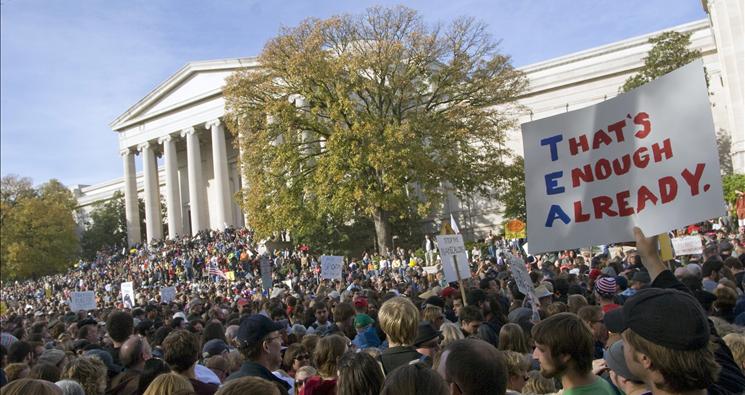The Tea-Party IRS Scandal: A Facebook FAQ
Right now, across this vast land, conservative Americans are doing social-media battle with their friends on the left. Since I manage our digital media for the ACLJ (in addition to doing lawyer stuff), I’m quite familiar with the equivalent of the AP Style Manual for Facebook commentary. So, in the spirit of clarity (and to have a little fun), I hereby present a “Facebook FAQ” on the IRS controversy written with questions we’ve seen and can all understand. (The ACLJ is representing some of the groups that have been investigated.)
Without further ado:
Q. Can you believe those paranoid wingnut teabaggers? They actually think the IRS is out to get them.
A. Thank you for your thoughtful yet borderline-profane observation regarding my mental state. But I beg to differ that my concerns are rooted in paranoia. The following statement comes from the May 14 report of the Treasury Inspector General for Tax Administration:
The Determinations Unit [within the IRS] developed and used inappropriate criteria to identify applications from organizations with the word Tea Party in their names. These applications (hereafter referrred to as potential political cases) were forwarded to a team of specialists for review. Subsequently, the Determinations Unit expanded the criteria to inappropriately include organizations with other specific names (Patriots or 9/12) or policy positions.
Q. Well, it’s only because they were flooding the IRS with applications from insane tricorner-hatted racists. They had to do something to sort it all out!
A. Not exactly. The inappropriate targeting began in 2010 (see page 6 of the report), and in 2010 there were fewer applications for 501(c)(3) and 501(c)(4) exemptions than in 2009 (see page 3).
Q. Oh, so the tea partiers had to answer some standard questions. Cry me a river!
A. Actually, the inspector general (page 18) said that the Determinations Unit “sent requests for information that we later (in whole or in part) determined to be unnecessary for 98 (58 percent) of 170 organizations that received additional information request letters.” There were seven questions the IG identified as unnecessary (page 20):

Q. So what. It’s not like the IRS will share that information with anyone. They have to keep it confidential!
A. Hmm, not so fast. Here’s a story from ProPublica, a lefty group. It begins:
The same IRS office that deliberately targeted conservative groups applying for tax-exempt status in the run-up to the 2012 election released nine pending confidential applications of conservative groups to ProPublica late last year.
Q. I mean, come on. Liberal groups were treated the same way. Right?
A. Nope. Turns out the IRS is a model of efficiency for them:
In February 2010, the Champaign Tea Party in Illinois received approval of its tax-exempt status from the IRS in 90 days, no questions asked.
That was the month before the Internal Revenue Service started singling out Tea Party groups for special treatment. There wouldn’t be another Tea Party application approved for 27 months.
In that time, the IRS approved perhaps dozens of applications from similar liberal and progressive groups, a USA TODAY review of IRS data shows.
Q. Stop spamming me. I know there’s two sides to every story! WDJSS? What did Jon Stewart say?
A. This:
